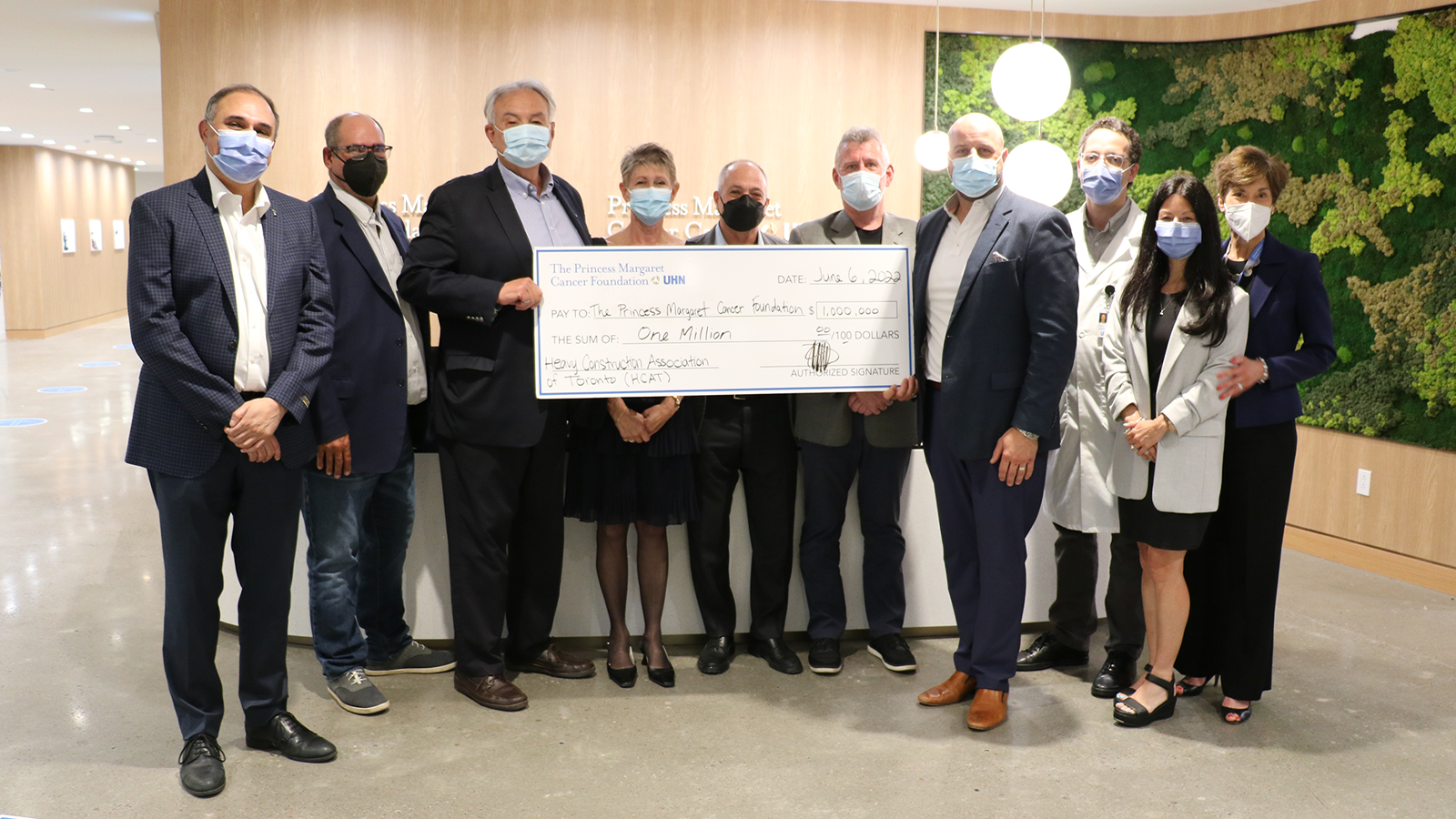.png?lang=en-CA&ext=.png)
This form of treatment allows patients to have focal therapy to treat cancer in a specific area of the prostate, with the aim to reduce the amount of damage to the prostate gland and surrounding areas.
Now, thanks to a $1 million gift made to The Princess Margaret Cancer Foundation by the Heavy Construction Association of Toronto (HCAT), researchers are one step closer to achieving this goal.
Prostate cancer is the most common type of cancer among Canadian men; one in eight men will be diagnosed in their lifetime. Unfortunately, Peter Smith, Executive Director at HCAT, is one of them.
“It was a particularly bad day. After undergoing a biopsy, my urologist confirmed that I had prostate cancer,” said Peter, reflecting on his diagnosis. “On that very same day, my wife Maureen was told the tumour in her stomach was cancerous. She is a two-time survivor of breast cancer.”
HCAT is proud to raise awareness about prostate cancer, prompt conversations focused on health and well-being, and help advance The Princess Margaret’s life-changing research, he added.
“HCAT is choosing to make a difference in the collective fight against cancer, and we challenge other unions and associations in the industry to step up too.”
Daniel Alonzi, President at HCAT and Vice President at Bridgecon Construction, said the gift was made in honour of Peter and Maureen Smith: “Peter stands up for our industry each and every day, and it was time for our industry to stand up for Peter, Maureen, and everyone who ever has or ever will battle with cancer.”
Dr. Sangeet Ghai, Radiologist and Program Lead, Dr. Nathan Perlis, Staff Urologist in the Department of Surgical Oncology, and Kateri Corr, Clinical Research Coordinator, are working together on this clinical trial at The Princess Margaret. Dr. Ghai says the gift will help support researchers in developing a treatment planning software to treat men with localized intermediate-risk prostate cancer. “It will also allow us to expand the clinical trial by enrolling more patients who may benefit from the treatment while we obtain approvals from Health Canada and the Ministry of Health,” he added.
Traditionally, treatment for localized prostate cancer has largely been limited to whole gland radiation, or surgery. Potential side effects for both forms of treatment include erectile dysfunction and urinary incontinence. Another potential side effect of radiation is inflammation and scarring of the rectum.
However, focal therapy is a potential game-changing option for patients with low to intermediate-risk prostate cancer. The Princess Margaret is the first site to perform focal laser therapy under MRI guidance for prostate cancer.
MRI-guided laser interstitial thermal therapy – a same day outpatient procedure – involves inserting laser needles into the tumour, under magnetic resonance imaging (MRI), to burn away the cancerous tissue. MRI guidance allows for thermal mapping, which provides a safety net, more precise targeting, and real-time confirmation of a tumor's destruction.
“Focal treatment under MRI guidance has distinct advantages. It allows the operator to accurately localize the site of disease and provides thermal feedback during treatment. It gives the patient the best opportunity for oncological control and preserving sexual and urinary function. Up to a third of men with localized disease may be eligible for focal therapy,” said Dr. Ghai.
"Some of my patients require surgery because they have more advanced disease. But for men with focal tumours, laser ablation offers the opportunity for targeted treatment and maintaining quality of life," Dr. Perlis said. "We want to be able to offer tailored treatments for men with prostate cancer. Personalizing treatment options is the future of cancer care."
Peter and his colleagues advocate for wide access to the treatment.
“When I was diagnosed, it was scary to see the potential impact of treatments. I thought ‘what would it be like if I were diagnosed at 35 or 40’,” says Peter. “When we learned there was a way around experiencing side effects that come with traditional forms of treatment, we all agreed that supporting the team’s research is important to us.”
“Finding a cure with minimal side effects is the dream for men with prostate cancer,” he added.
Published October 20, 2022